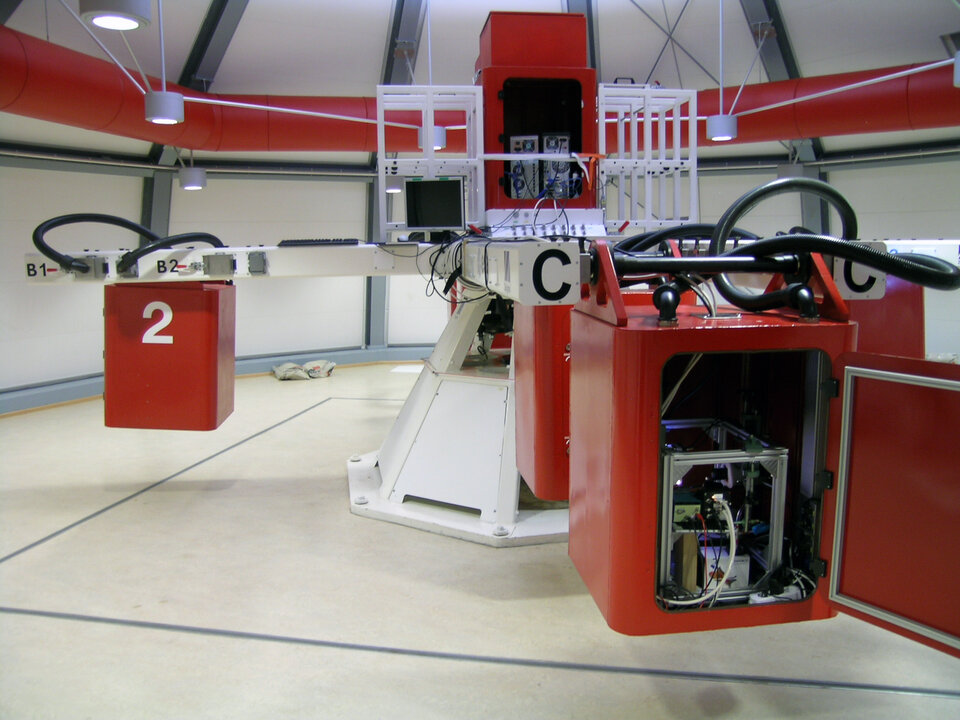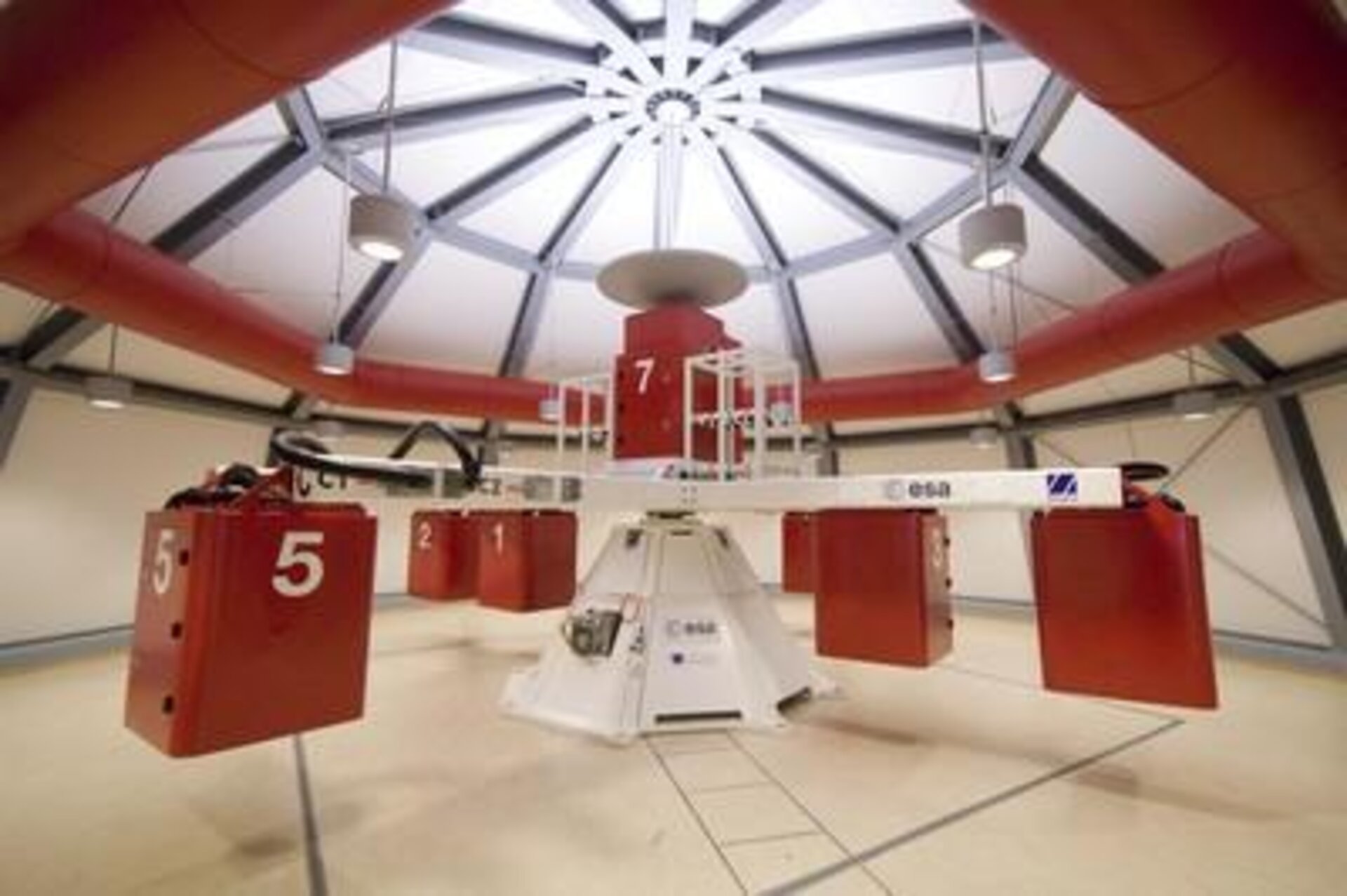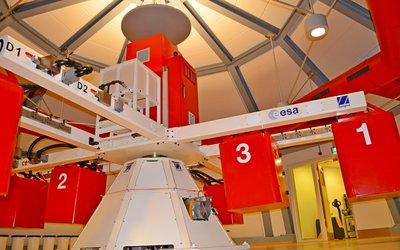Spin Your Thesis! 2014 teams selected
Four teams of university students have been chosen to develop and conduct hypergravity experiments during ESA's fifth Spin Your Thesis! campaign.
The campaign will take place from 8 to 19 September 2014 at the Large Diameter Centrifuge facility located at ESA's European Space Research and Technology Centre (ESTEC) in Noordwijk, the Netherlands. Each week two teams will use the centrifuge equipment.
During the preparation of their experiments, the students will be supported by ESA's Education Office and hypergravity experts. A member of the European Low Gravity Research Association (ELGRA) will also be on hand to provide advice and expertise in gravity-related research.
The selected teams and their experiments are the following:

AngioGravity: The team is composed three Master students from the University of Porto and one PhD candidate from the MIT Portugal Program (Portugal) studying bioengineering. Their interest is focused on understanding angiogenesis, the formation of new blood vessels, under hypergravity conditions for tissue engineering applications. Angiogenesis plays a crucial role throughout postnatal life in physiological (e.g. wound healing and the menstrual cycle) and pathological events (e.g. inflammatory diseases and tumour growth) as well as in tissue remodelling and regeneration.
Sponges in Space: The team is composed of two Master students and one PhD candidate studying aquatic ecology and ecotoxicology and evolutionary biology at the University of Amsterdam (the Netherlands). The teams aims to study the energy demands of developing sponges by influencing the physical constraints during a specific stage of germination. The findings could help to improve culture methods for sponges and their use in biotechnological purposes such as drug development.
Transformers: The team is composed of four PhD students studying micro-biorobotics at the Istituto Italiano di Tecnologia (Italy). They will explore hypergravity as a physical stimulus enhancing gene delivery for regenerative medicine purposes. The expected results may help overcoming limitations inherent to currently available methodologies in the delivery of genes useful for the treatment of skeletal muscle conditions.
Glacier: The team is composed of two master students studying Earth Science at the University of Amsterdam (the Netherlands). They will model the influence of gravity on glacier flow dynamics. The knowledge that they will obtain could contribute to new interpretations or even to reconstruction of landscape formation on Mars, where large parts of the surface were deformed by the ice.
The selection for Spin Your Thesis! 2014 was made by experts from ESA's Education Office, ESA's Technical Directorate and ELGRA.







